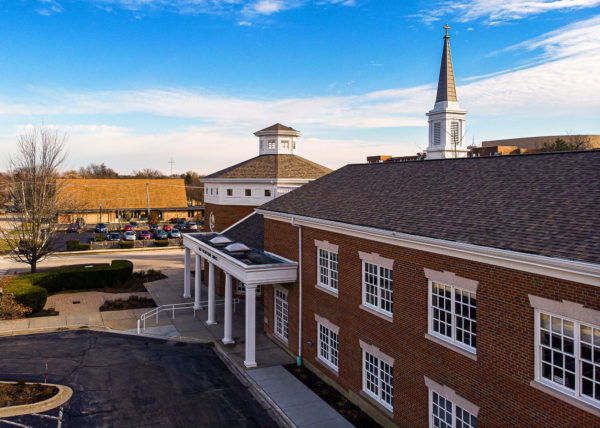At the beginning of each sermon in our current sermon series, The Parables of Jesus, we are invited to consider how we are being asked to live differently, both internally and externally, based on what that Sunday’s parable teaches us. One of the reasons Jesus’ parables are such powerful teaching tools is that they are multi-layered. There are surface lessons to learn, which are valuable and can help strengthen our spirituality in simple ways. But there are also deeper meanings, that when you peel back the layers, can open your eyes and heart and present a challenge of living our faith differently.
Over and over again, Jesus is showing us the way to create God’s Kingdom here on Earth. He teaches loving our neighbor as ourselves. He teaches that God’s flock isn’t complete if even just one sheep is missing. He reminds us of God’s extravagant fairness and asks us to treat each other with the same heart. His very life was a sacrifice, one that we can model with our own gratitude and generosity.
As we ponder Lazarus and the rich man, how does this parable prod us to live differently? If the rich man had a Kingdom heart mindset, how would he have behaved? Would he have invited Lazarus into his palace, welcomed him to his table, and cared for his wounds? Imagine if instead of begging for crumbs, a place at the table was set for Lazarus with all the bounty the rich man enjoyed. Can you picture Lazarus resting his weary body on a comfortable mat or cot, with covers to warm him and pillows to comfort his head? A Kingdom heart would have seen to Lazarus’ sores, and nursed him to full health, in both mind and body.
When I think about the challenge we’re presented with in this parable, I think Jesus is simply asking us to take care of each other. I think that Jesus wants us to see God reflected in the faces of all we meet. And if we see God in our neighbors and friends and strangers, how can we do anything less than take care of them? To me, that means acknowledging injustice in all its forms and working together to create equity for all. It means speaking out against hate and violence, and standing with communities who have been victimized. It means reaching across the chasms that divide us to find ways to create unity.
This challenge feels intimidating. It seems daunting. It feels like we’re being asked to do so much. But as we travel these final steps in our Lenten journey, we are reminded that while much is asked and expected of us, we take no action alone. We are accompanied every step of the way by the One who empowers us with the promise of eternal life. We are strong with God’s strength. We can be fearless with God’s courage. And we can love one another because of God’s love for us.


